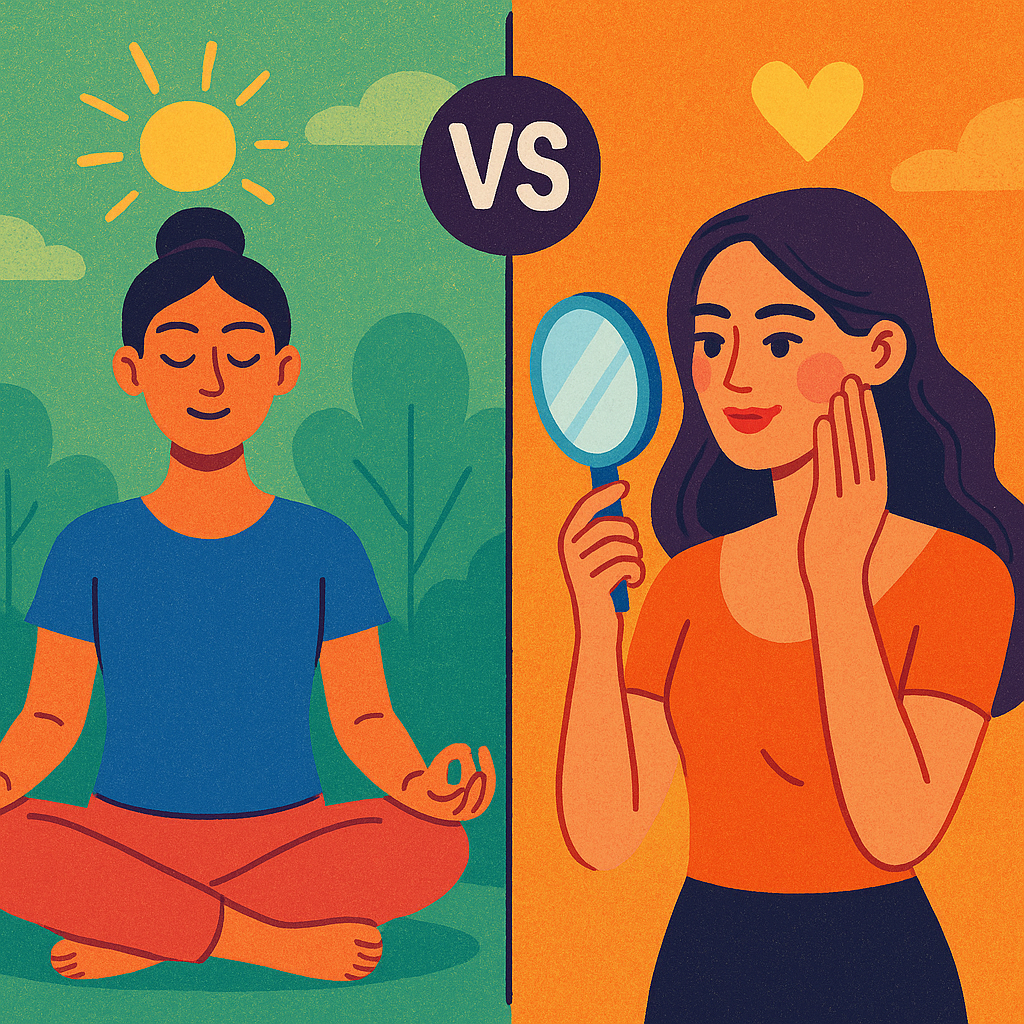Mindfulness vs Appearance
In today’s fast-paced world, the conversation around wellness often contrasts two distinct perspectives: mindfulness and appearance. As we delve into the generational differences, particularly between Millennials and Gen Z, it becomes evident that these two groups prioritize different aspects of well-being. While Millennials have embraced mindfulness as a path to inner peace, Gen Z tends to focus on external appearances, influenced by social media and digital culture.
The Millennial Mindset: Embracing Mindfulness
Millennials, those born between 1981 and 1996, have grown up in a world that has seen rapid technological advancements and significant social change. As they navigated their formative years, many turned to mindfulness practices as a means of coping with stress and uncertainty. This generation values experiences over material possessions, often seeking personal growth and mental clarity.
Mindfulness, the practice of being present and fully engaged in the moment, has become a cornerstone of Millennial wellness culture. From yoga retreats to meditation apps, Millennials have integrated mindfulness into their daily routines. This shift reflects a broader understanding of health that encompasses mental and emotional well-being. According to a study by the American Psychological Association, Millennials are more likely than previous generations to experience anxiety and depression, leading them to seek out mindfulness techniques to manage their mental health.
Gen Z: The Appearance Generation
In contrast, Gen Z, born between 1997 and 2012, has grown up in an era dominated by social media. Platforms like Instagram and TikTok have shaped their perceptions of beauty, success, and self-worth. Gen Z is often described as the “appearance generation,” with a significant emphasis on visual presentation and social validation. The pressure to curate an idealized image online can lead to a disconnect between their true selves and the personas they project.
While mindfulness is also gaining traction among Gen Z, it often competes with the overwhelming influence of appearance-driven culture. Studies reveal that social media can exacerbate feelings of inadequacy and anxiety, particularly when users compare themselves to the seemingly perfect lives of influencers and peers. This generation faces a unique challenge: balancing the pursuit of authenticity and self-acceptance with the pressure to conform to societal standards of beauty.
The Impact of Social Media
Social media plays a pivotal role in shaping the values and behaviors of both Millennials and Gen Z. For Millennials, platforms like Facebook and Instagram have been tools for connection and community building. They often use these platforms to share personal milestones, promote causes, and engage in discussions about mental health and wellness.
Conversely, Gen Z’s experience with social media is more complex. They are digital natives, having never known a world without smartphones. This constant connectivity creates a dual reality: while they can access an abundance of information and support, they are also bombarded with curated content that can distort their self-image. The desire for likes and follows can lead to a superficial understanding of self-worth, often overshadowing the importance of mindfulness.
Finding Balance: Mindfulness in a Digital Age
Despite these challenges, there is hope for bridging the gap between mindfulness and appearance. Both generations can benefit from integrating mindfulness practices into their daily lives, helping to counterbalance the negative effects of social media. Mindfulness can serve as a powerful tool for self-reflection, allowing individuals to cultivate a deeper understanding of their values and priorities.
For instance, Gen Z can leverage mindfulness to enhance their self-esteem and body image. Practices such as gratitude journaling, meditation, and mindful movement can help them appreciate their unique qualities beyond physical appearance. By focusing on internal growth rather than external validation, they can foster a healthier relationship with themselves.
Examples of Mindfulness Practices
Both Millennials and Gen Z can explore various mindfulness techniques to enhance their well-being. Here are a few examples:
- Mindful Meditation: Spending just a few minutes each day in quiet reflection can significantly reduce stress and enhance emotional clarity.
- Gratitude Journaling: Writing down things you are thankful for can shift your focus from what you lack to what you have, fostering a more positive mindset.
- Mindful Movement: Activities like yoga or tai chi can promote physical health while encouraging mental presence and mindfulness.
The Role of Brands in Promoting Mindfulness
As awareness around mental health continues to grow, brands targeting both Millennials and Gen Z have an opportunity to play a vital role in promoting mindfulness. Companies can create campaigns that celebrate authenticity and vulnerability rather than perfection. By showcasing real stories and encouraging open conversations, brands can help dismantle the unrealistic standards that often dominate the digital landscape.
Moreover, wellness brands can incorporate mindfulness into their offerings, such as creating apps that combine fitness with mental well-being or promoting products that emphasize self-care routines. This shift not only aligns with consumer values but also fosters a community centered on holistic health.
Conclusion: Bridging the Gap
The contrast between Millennials’ focus on mindfulness and Gen Z’s emphasis on appearance highlights the evolving conversation around wellness in our society. While both generations face unique challenges, they also share common ground in their quest for well-being. By embracing mindfulness, both Millennials and Gen Z can find balance in a world that often prioritizes the superficial.
Ultimately, the journey towards self-acceptance and mental clarity is ongoing. As we navigate the complexities of modern life, let us encourage one another to look beyond appearances and cultivate a deeper connection with ourselves and those around us. For more insights on wellness and self-care, explore our wellness hub.
Call to Action
If you found this article insightful, share it with your friends and join the conversation on how we can collectively embrace mindfulness in our lives. Let’s redefine wellness together!

